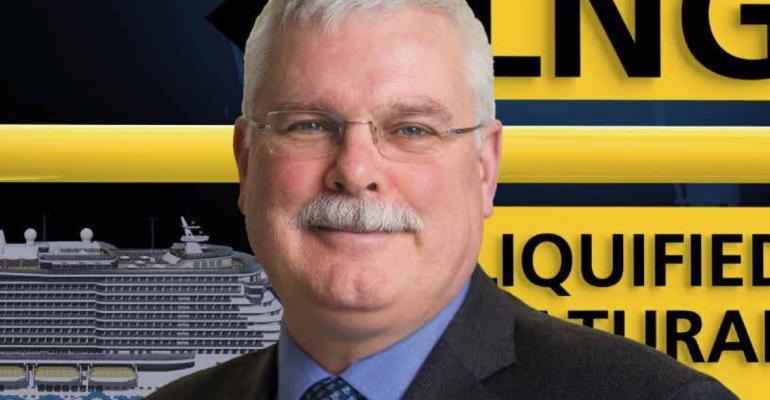The coalition consists of organizations across the maritime, energy, infrastructure and finance sectors.
Their goal aligns with the International Maritime Organization's strategy to reduce greenhouse gas emissions from shipping by at least 50% by 2050, compared to a 2008 baseline.
Zero-emission vessels as early as 2030
To meet the target, the Getting to Zero Coalition aspires to having technically feasible, commercially viable zero-emission deep sea vessels entering the global shipping fleet as early as 2030.
The alliance's ambition also includes scalable infrastructure for zero-carbon energy sources, including production, distribution, storage and bunkering. Supported by key governments and intergovernmental organizations, the coalition represents a group of more than 80 companies, including global stakeholders from a variety of shipping-related industries such as fuel suppliers, engine manufacturers, marine classification societies, shipping companies, major ports and more.
Developing a road map
‘We look forward to working with fellow coalition partners in the maritime, energy and other related industries, as well as academics, think tanks and policymakers, to develop a road map that identifies the technologies, investments and actions we must pursue to begin introducing zero-emission vessels into the global shipping and passenger fleet,’ said Tom Strang, senior vice president of maritime affairs for Carnival Corp.
‘Across our nine brands, we host more than 12 million guests every year and visit over 700 ports of call around the world. The health and vitality of our oceans andseas, along with the hundreds of communities we visit across the globe, are absolutely essential to our business.’
Strang added that being an active part of the Getting to Zero Coalition is another important step for the environment.
Launched at UN Climate Action Summit
Launched at the United Nations Climate Action Summit in September, the Getting to Zero Coalition is a partnership among the Global Maritime Forum, the Friends of Ocean Action and the World Economic Forum. It builds on the call to action in support of decarbonization launched in October 2018 at the Global Maritime Forum and signed by more than 70 companies from across the maritime industry, financial institutions and other stakeholders, as well as on the Poseidon Principles, a global framework for climate-aligned ship financing launched in June 2019.
Carnival Corp. said its nine cruise brands are committed to developing innovative solutions that support sustainability and environmentally friendly operations, as part of a broader corporate strategy that includes a commitment to further improve environmental compliance and performance.
Meanwhile, LNG, scrubbers, shore power and more
In 2017, the company achieved its 25% carbon reduction goal three years ahead of schedule, and is on track with its nine other 2020 sustainability targets for reducing its environmental footprint. As part of its strategic plan, Carnival leads the cruise industry's use of liquefied natural gas to power ships, with a total of 11 LNG nwbuilds joining its fleet through 2025.
The world's first cruise ship powered by LNG, AIDAnova, entered service in late 2018, followed by Costa Smeralda earlier this month.
In addition, as of July this year, Carnival had installed what it calls ‘advanced air quality systems,’ or scrubbers, on more than 70% of its fleet. The systems remove almost all sulfur oxide emissions and 75% of particulate matter and reduce nitrogen oxide emissions.
More than 40% of the company's fleet is equipped for cold ironing, enabling ships to use shoreside electric power where available in port. The company also has implemented broad initiatives to optimize on-board energy use and innovative hull designs and coatings to reduce fuel consumption.
Copyright © 2024. All rights reserved. Seatrade, a trading name of Informa Markets (UK) Limited.
Add Seatrade Cruise News to your Google News feed.  |

